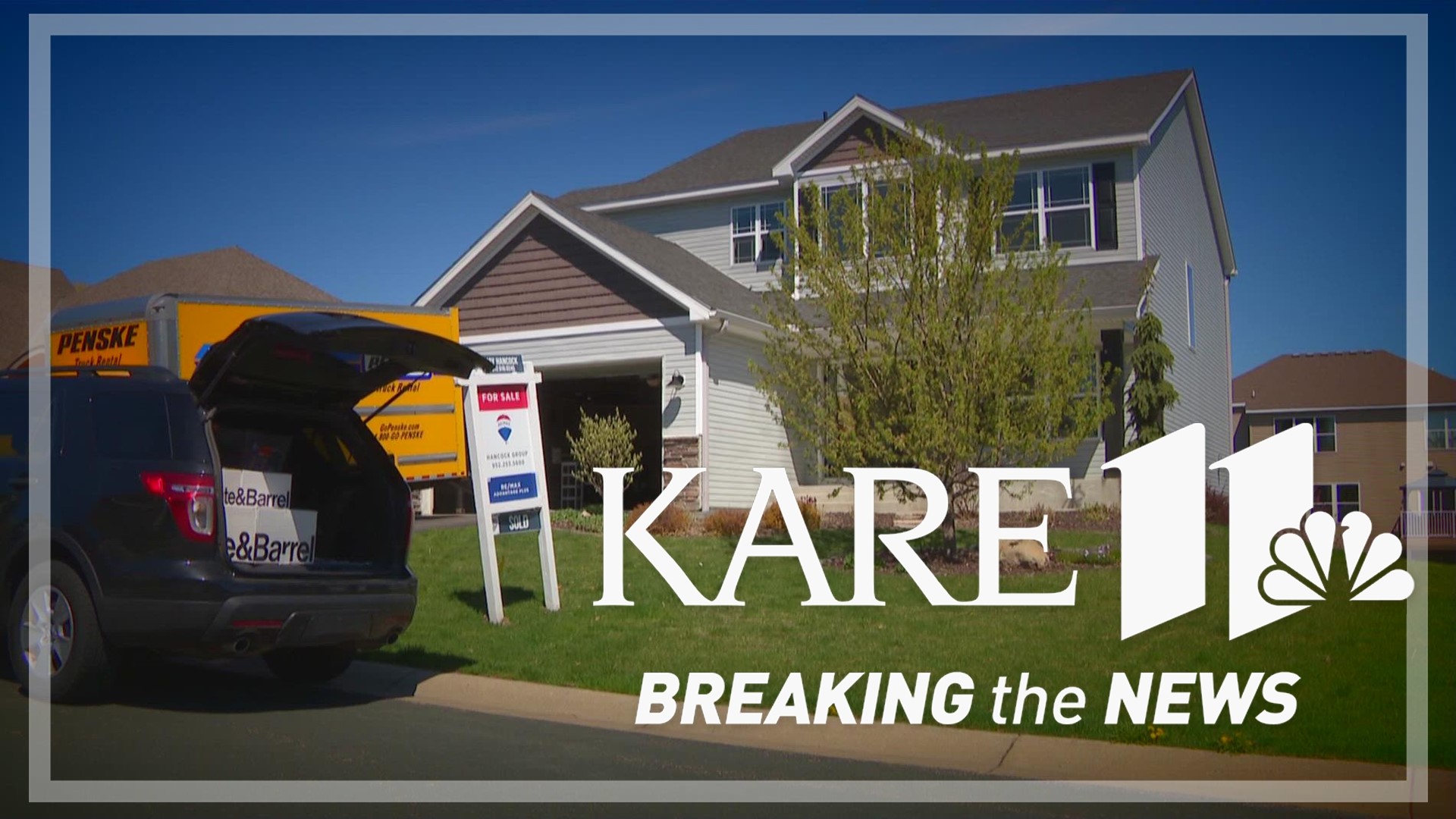MINNEAPOLIS — With interest rates on the rise, a lot of homebuyers are looking into adjustable-rate mortgages to help them save a little money.
Back in January, the Mortgage Bankers Association says of all the mortgage applications out there, around 3% were for adjustable-rate mortgages.
Now, it's around 9%, so three times higher, but 9% is still very much the minority, and a lot of people have no idea what an adjustable-rate mortgage even is.
Let's start with the basics.
An Adjustable-Rate Mortgage, ARM for short, is a mortgage where the interest rate on your mortgage changes with the market.
With traditional mortgages, say for 15 or 30 years, your rate is locked in, it doesn't change, but with ARMs it does.
"It can adjust, either up, down, or stay the same,” Mark Hastie with the Minnesota Department of Commerce says.
Hastie says ARMs have an introductory rate, and it's usually about 1% lower than a typical mortgage, so buyers can save some money in the short term.
That’s what makes ARMs so attractive to some home buyers.
That introductory rate is usually locked in for five or seven years.
After that, it changes, and that's when things get interesting.
"It is a risk out there that in those five or seven years that you may be stuck with a higher monthly mortgage payment,” Hastie says.
Here's how it works.
Let's say you buy a house in Minneapolis for $340,000, you have a 20% down payment, and your 30-year interest rate is 5.7%.
Without taxes and insurance, your monthly bill would be $1,578 a month.
With a regular mortgage, that monthly payment is locked in for the next 15 or 30 years, depending on the terms of your mortgage.
However, with an ARM that monthly payment can change after the introductory rate expires.
So, let's say the interest rate goes down to the lowest we ever saw, which was back in January of 2021 — rates were around 2.65%.
That would bring your monthly payment down to $1,096 a month, saving you nearly $500 on your monthly bill.
Pretty great, right?
But look what happens if rates go up.
If they go up just 1% to 6.7% it adds $177 to your monthly bill.
And if the interest rates go up to the highest rates we've seen in 40 years, to 18.5% back in 1981, your monthly mortgage payment would balloon up to more than $4,000 a month.
However, Hastie says most ARMs have limits on how much your monthly rate can go up or down, so it’s not likely that this scenario will play out.
"Most of them have mechanisms in place to prevent that from happening,” Hastie explains.
He says in most cases, the rate for an ARM can only go up by as much as 1% per year.
Most ARMs also have a cap on how much the rate can go up over the course of the entire mortgage.
“So, a homebuyer could potentially see their rate go up to maybe 8% or 10% in some cases,” Hastie says.
But not every ARM is the same.
"You have to ask those questions and read the fine print. Take your time. Don't feel like you have to rush to do anything,” Hastie says.
He says ARMs can be a great tool.
If you're willing to take on a little risk, and you're planning on moving before the introductory rate changes, he says an ARM can save you a lot of money.
But if you don't like risk, and you want a steady monthly payment, then maybe they're not for you.
"I would encourage consumers to take a look at your situation. How stable is your income going to be?” Hastie says.
“Ask those questions of the mortgage broker or lender, if this goes up in five or seven years, what will my monthly payments look like?"
Hastie says ARMs are less risky than they used to be, because there are more regulations in place.
A lot of lenders will also run several scenarios to find out whether a homebuyer can still afford the monthly mortgage payment if rates go up.
But every lender is different. That's why Hastie really encourages buyers to read the fine print and run your own numbers before you sign anything.
The Minnesota Department of Commerce is the licensing agency for mortgage lenders and brokers.
Hastie says the agency works with around 800 companies and more than 13,000 individuals in the state of Minnesota who are all licensed to sell mortgages.
He says homebuyers can always call the Minnesota Department of Commerce’s mortgage team with any questions or concerns.
Watch more Breaking The News:
Watch all of the latest stories from Breaking The News in our YouTube playlist:

